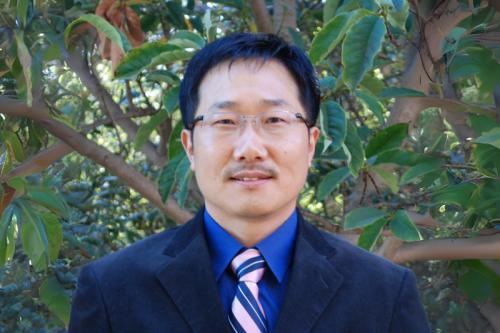
Yong Kim, Ph.D.

Yong Kim, Ph.D., investigates how cell cycle regulation and epigenetic mechanisms influence stem cell function, embryo development and cancer progression. He seeks to develop new diagnostic and therapeutic strategies — particularly in the early detection and treatment of cancer.
Kim’s research explores how molecular mechanisms regulate stem cell self-renewal and differentiation, with a focus on the role of cell cycle regulation and epigenetic control. By studying both mouse and human embryonic stem cells, he aims to uncover how disruptions in these regulatory pathways contribute to cancer development and to translate these insights into new diagnostic and therapeutic strategies.
In addition to his work on stem cell biology and cancer, Kim investigates how teratogens — substances or factors that can cause birth defects — affect stem cell maintenance and embryonic development. Given the limitations associated with human studies, he employs alternative models to explore these unanswered questions.
Kim is also engaged in translational research to advance non-invasive cancer diagnostics. Through a long-term collaboration with the UCLA saliva diagnostics group, he is working to develop and clinically validate a salivary biomarker for the diagnosis of human cancers. His research examines the molecular and cellular mechanisms underlying the biogenesis, transport and targeting of salivary extracellular RNA, or exRNA, as a mode of cell-independent communication. Determining its role in the synthesis of disease-specific biomarkers in salivary fluids could improve early disease diagnosis and monitoring.
Research Projects
- Exploring how cell cycle regulators influence embryonic stem cell differentiation The process by which stem cells transform into specific, specialized cell types with distinct functions and features. differentiation The process by which stem cells transform into specific, specialized cell types with distinct functions and features. and embryo The early developmental stage of a multicellular organism, typically occurring after fertilization of an egg cell by a sperm cell. embryo The early developmental stage of a multicellular organism, typically occurring after fertilization of an egg cell by a sperm cell. development
- Studying the effects of teratogens on human stem cells Cells that have the ability to differentiate into multiple types of cells and make an unlimited number of copies of themselves. stem cells Cells that have the ability to differentiate into multiple types of cells and make an unlimited number of copies of themselves., which could improve understanding of birth defects and reproductive health risks
- Investigating the effects of epigenetic regulation in embryonic stem cell differentiation and cancer development
- Exploring translational applications of cell cycle regulatory mechanisms for the treatment of head, neck and oral cancers
- Advancing liquid biopsy cancer detection techniques by analyzing cancer-associated oncogenic mutations and exosomal content
-
Post-doctoral Fellowship
- Cancer, Harvard University, 1999
Degree
- Ph.D., Biochemistry, University of Rochester, 1998
